The permanently frozen, lower layers of soil found in the tundra and subarctic climate zones.
a. Czar
b. Permafrost
c. Socialism
d. Collectivization
b. Permafrost
What adaptations would people need to make in their living conditions and clothing to be able to survive the arctic climate of Siberia?
a. Clothing and shelter must be built warmer for such a harshly cold environment
b. Food must be purchased from nearby cities
c. Only cold weather crops grow in this region, so diets are different
d. The environment is too harsh to survive in, so most people migrate south
a. Clothing and shelter must be built warmer for such a harshly cold environment
The title given to an emperor of Russia’s past
a. Permafrost
b. Collectivization
c. Czar
d. Socialism
c. Czar
Which feature describes many socialist economic systems in Europe?
a. Low taxation rates
b. Government-managed healthcare
c. Lots of small businesses
d. Privately owned corporations
b. Government-managed healthcare
Who was the last of the Czar dynasty in Russia?
a. Peter the Great
b. Linnin
c. Stalin
d. Romanov
d. Romanov
What is the area located in central Russia with Arctic temperatures?
a. Kiev
b. St. Petersburg
c. Moscow
d. Siberia
d. Siberia
This type of architecture is unique to Russia and can be found on religious buildings
a. Pavlova
b. Onion Dome
c. Russian Icon
d. Adobe
b. Onion Dome
Why did many Eastern European countries join the Soviet Union after WWII?
a. The United Nations rejected Eastern European nations
b. People living in Eastern Europe spoke the same language as the USSR
c. Under Soviet control, Eastern Europe was forced to adopt communism
d. People living in Eastern Europe didn’t like the way Western Europe lived
c. Under Soviet control, Eastern Europe was forced to adopt communism
Due to Russia's communist history, their economy today is mixed market. This means that:
a. There are complete private ownership and free market policies
b. The government does NOT have any authority in the economic sector
c. The government owns many large corporations like energy companies
d. The government has total control and owns all resources and businesses
c. The government owns many large corporations like energy companies
Who was dedicated to expanding the boarders of Russia, was well educated, and was devoted to the idea of making Russia into a modern country?
a. Katherine the Great
b. Lennin
c. Ivan the Terrible
d. Peter the Great
a. Katherine the Great
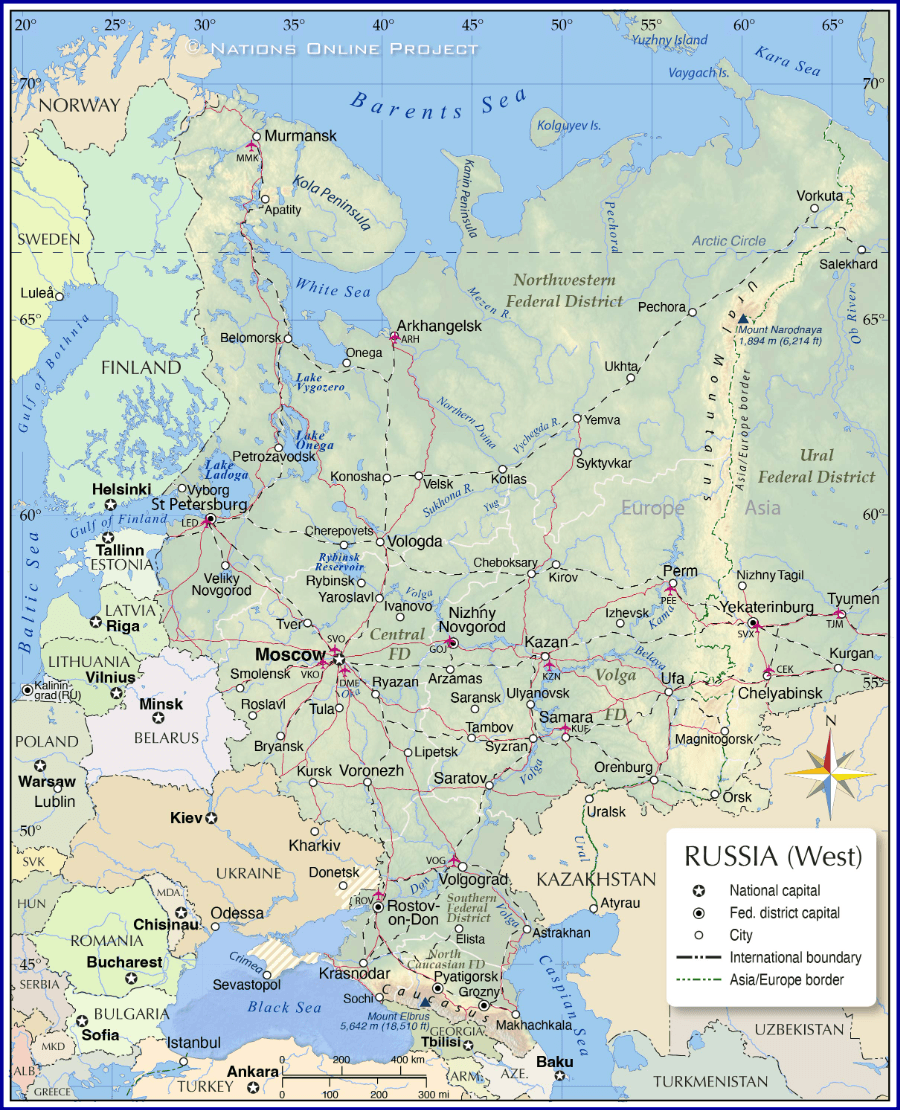
Based on the map, which city is located outside of the boundary of present-day Russia?
a. Kiev
b. St. Petersburg
c. Moscow
d.Vladivostok
a. Kiev
The majority of Russians follow this religion
a. Islam
b. Judaism
c. Baptist
d. Eastern Orthodox Church
d. Eastern Orthodox Church
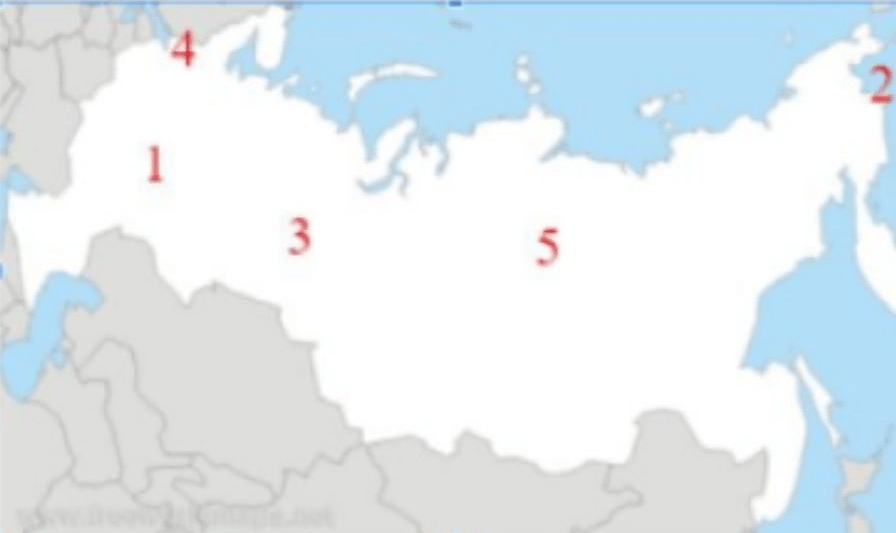
Where is the Moscow?
a. 1
b. 2
c. 4
d. 5
a. 1
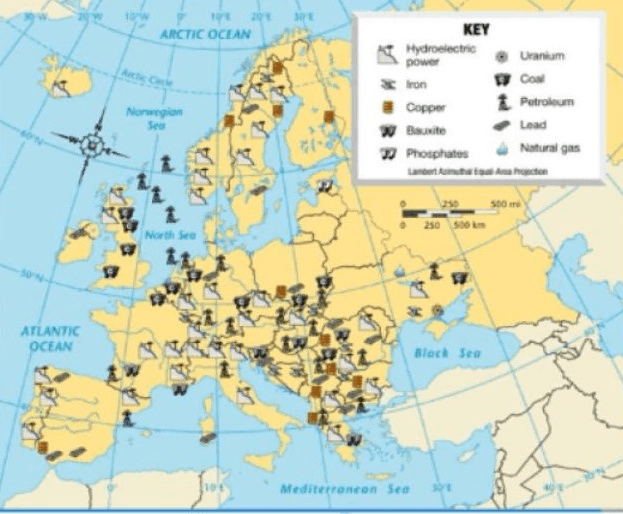
The map shows natural resources located in Russia and the European Republics. From this we can infer that economics in these regions rely on what industries?
a. service and fishing
b. oil and service
c. livestock and minerals
d. minerals and oil
d. minerals and oil
A political and economic theory of social organization which advocates that the means of production, distribution, and exchange should be owned or regulated by the community as a whole
a. Communism
b. Socialism
c. Collectivization
d. Czar
a. Communism
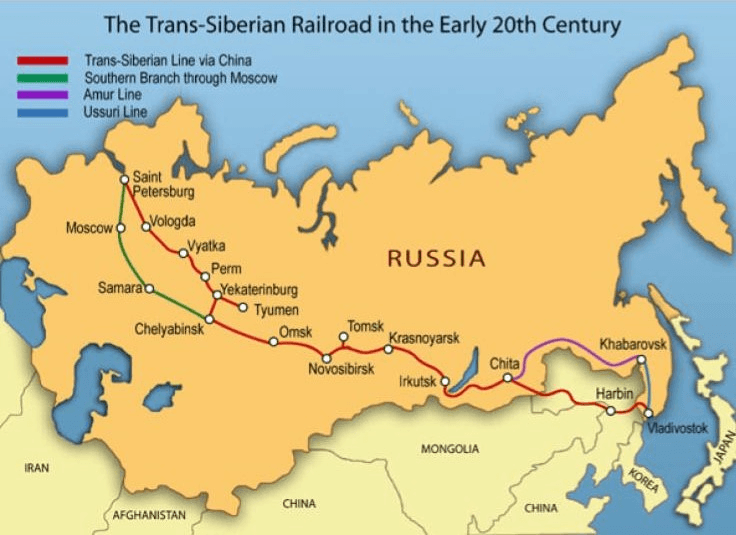
Based on the map, what is a reasonable motive for Russia to build the Trans-Siberian railway?
a. Russia is too large to drive across
b. Resources can be collected and easily transported from all parts of Russia
c. Siberia is difficult to cross much of the year
d. all of the above
d. all of the above
A Russian composer who wrote Swan Lake and 1812 Overture.
a. Tchaikovsky
b. Tolstoy
c. Nureyev
d. Stalin
a. Tchaikovsky
Who was the harsh dictator who pushed Russia from an agricultural society to a military and industrial power?
a. Stalin
b. Lennin
c. Katherine the Great
d. Ivan the Terrible
a. Stalin
By the 1950's the Soviet Union had become a major industrial power by
a. using fishing as their primary income
b. having huge oil and gas resources
c. creating a large military
d. finding gold in the Ural mountains
b. having huge oil and gas resources
A system of government in which the government controls the ways of producing goods
a. Communism
b. Socialism
c. Collectivization
d. Permafrost
b. Socialism
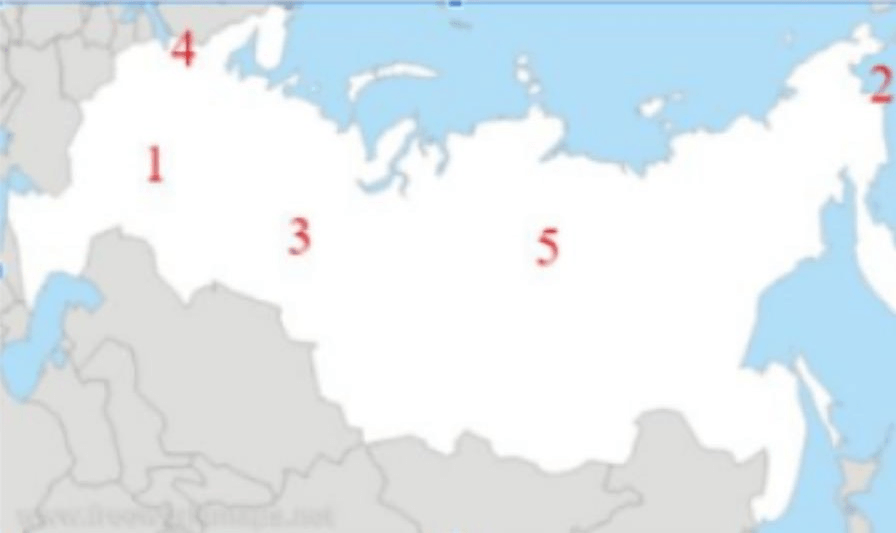
Where is the Bering Sea?
a. 1
b. 2
c. 4
d. 5
b. 2
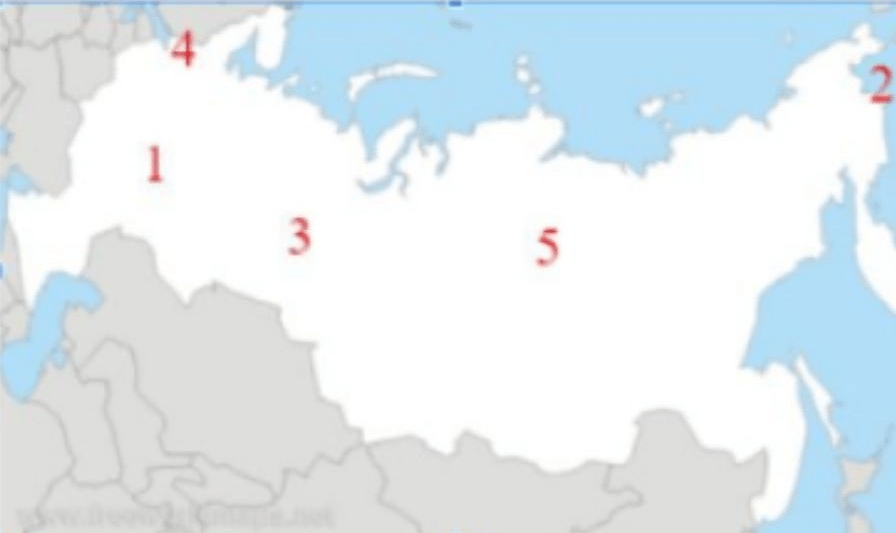
Where is Siberia?
a. 1
b. 2
c. 5
d. 4
c. 5
Who named the a new Russian capital after himself and moved the capitol out of Moscow?
a. Katherine the Great
b. Lennin
c. Ivan the Terrible
d. Peter the Great
d. Peter the Great
Karl Marx had a theory that a social, political, and economic system that focuses on the struggle between capitalists and the working class. This was
a. Communism
b. Socialism
c. Collectivization
d. A good thing
a. Communism
A system in which small farms were combined into huge, state-run enterprises with work done by mechanized techniques in the hopes of making farming more efficient and reducing the need for farmworkers.
a. Permafrost
b. Communism
c. Socialism
d. Collectivization
d. Collectivization